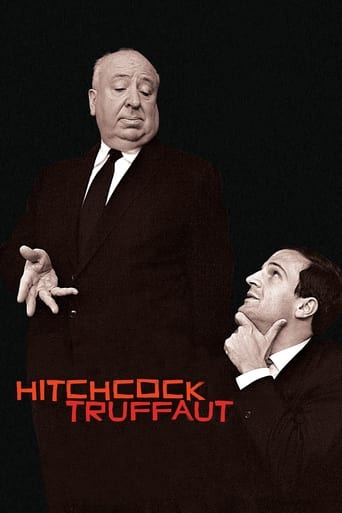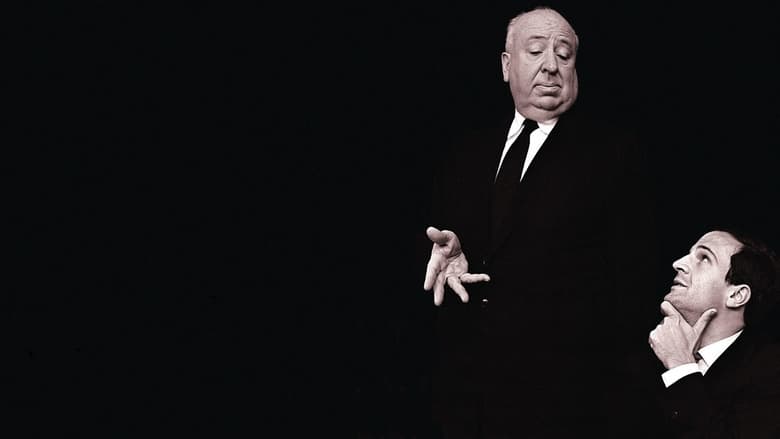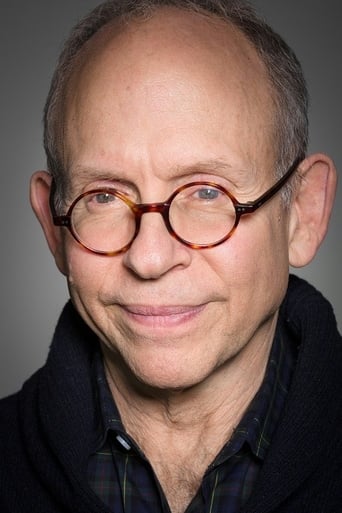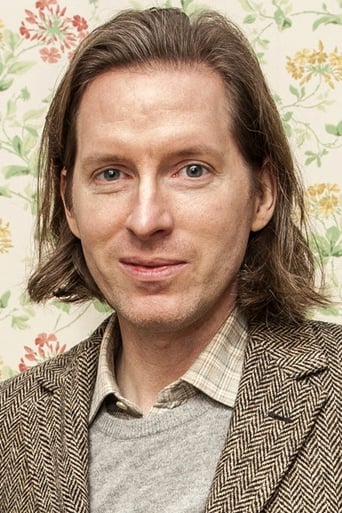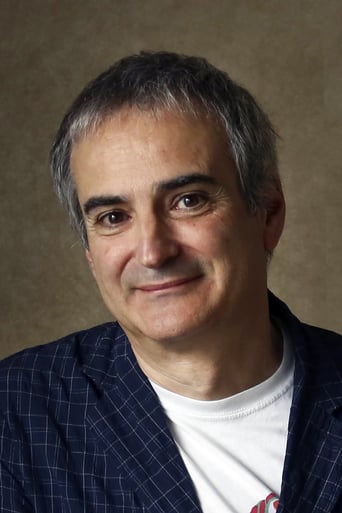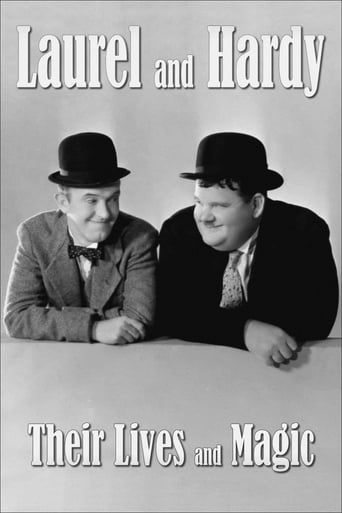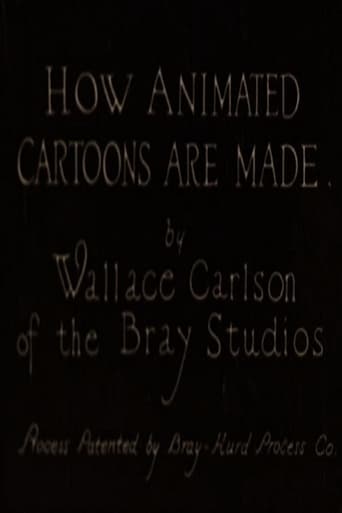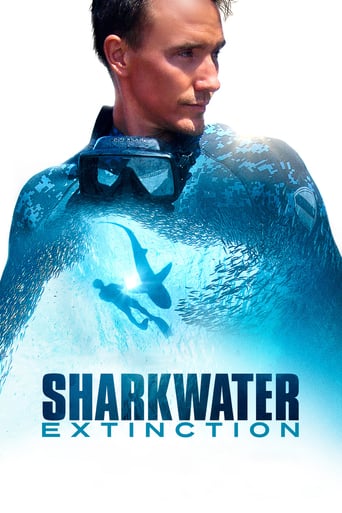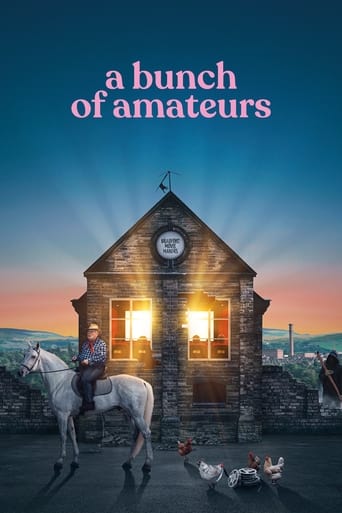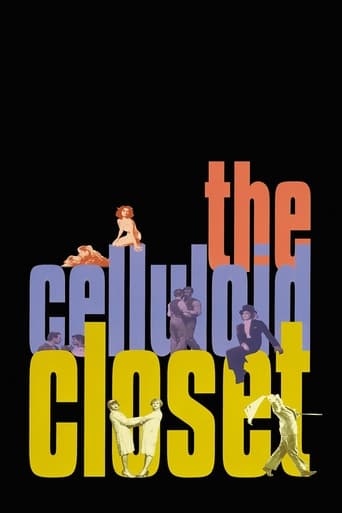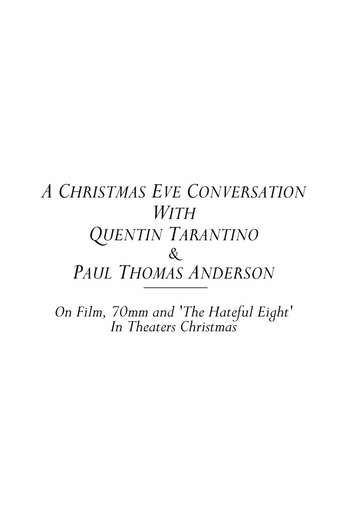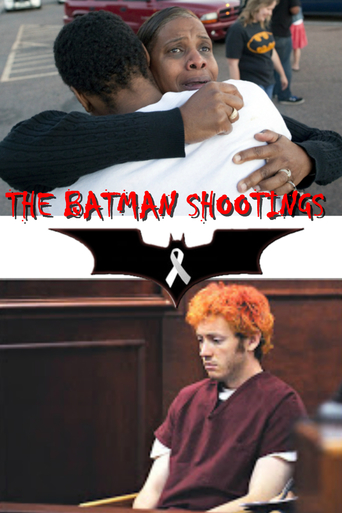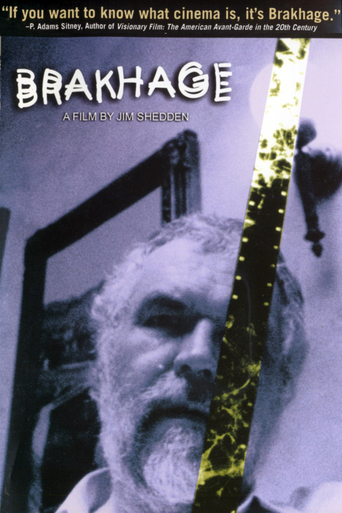Hitchcock/Truffaut (2015)
Filmmakers discuss the legacy of Alfred Hitchcock and the book “Hitchcock/Truffaut” (“Le cinéma selon Hitchcock”), written by François Truffaut and published in 1966.
Watch Trailer
Cast


Similar titles
Reviews
Absolutely the worst movie.
The performances transcend the film's tropes, grounding it in characters that feel more complete than this subgenre often produces.
a film so unique, intoxicating and bizarre that it not only demands another viewing, but is also forgivable as a satirical comedy where the jokes eventually take the back seat.
The story, direction, characters, and writing/dialogue is akin to taking a tranquilizer shot to the neck, but everything else was so well done.
The title plays like a clever nod to "Frost/Nixon" but in this case, the interviewee's name is put first, a matter of respect that even Truffaut would have acknowledged. Look at the poster, Truffaut is like a disciple totally enthralled by the humorously pedantic look the Master is deigning to give him. In reality they were just having fun together, having earned a few minutes of relaxation after having provided so many hours of valuable insights not only on Hitchcock's movies but on his vision of film-making, and if anyone was entitled to say what film-making was about, no doubt it was the director with the iconic shadowy silhouette.Indeed, even when he wasn't making great movies, Alfred Hitchcock was still the greatest director to have ever graced the screen. He reconciled two generally conflicting approaches: the artistic and the technical, he could indulge to symbolism, to hyperbolic visuals, to innovative dilatation or accelerations of time, to juxtaposition of shots or the use of specific leitmotiv but he never, never improvised: every frame, every moment was sketched, planned and studied with a meticulous attention to small (and pervert) details and a unique sense of anticipation. You can see this pattern even in that distinctively slow voice he had, as if he had to think before, set up his mind, before announcing a subject. And yet he could sound witty and funny on the spot. Hitchcock was a man of paradoxes, but he was himself a paradox, an artist, a technician and a natural.That's the genius of Hitchcock. And that's how he became the true Master of Suspense; he had to get in control of every single element: the timing, the use of particular objects or plot device (his McGuffin darlings) as props, of even his characters as the props of his own creativity. His infamous "treat actors like cattle" takes its full meaning once you hear him talk about the attention for characterization and his fascination for human paradoxes: having a totally innocent man being mistaken from a dangerous criminal, a lovable family uncle being a serial killer or a sophisticated blonde have a volcanic libido in privacy. Hitchcock was like a Master Puppeteer, he didn't belong to the Elia Kazan or method acting of school, he pulled the strings himself and it's only fitting that his trademark theme was Gounod's "Funeral March of a Marionette". Basically, many of his movies can be looked at as a macabre march (or chase) of a puppet-like character.But we were his puppets as well. Hitchcock could toy with our emotions like no other director, making it an instant signature, probably what made him recognized by 'Cahiers du Cinéma' as an auteur director. When then critic François Truffaut, along with New Wave icons to be (Chabrol, Brialy and Godard), started to re-evaluated the history of cinema, they defined the auteur as a director whose unique vision and sense of narrative and style shaped most of the movie. The idea wasn't to dismiss any movie from a non auteur but to say that even the lesser movie from an auteur will be more interesting than the other director's main work. In the documentary, Scorsese mentions that the art of directing is so reliant on contributions: from the actors, the editors, the writers, the musicians that you can't just make the director the sole 'maker' of the film what would "Psycho" be without Bernard Herrmann or Anthony Perkins.Still, Hitchcock can get away with it. Even his lesser movies, with casting choices he ended up regretting, had a Hitchcockian quality. It started in the 30's, became widely known in the 40's and then culminated in the 50's. In 1962, he had just finished "Psycho" and was working on his "Birds" when Truffaut was only starting with three movies that met with international acclaim. Truffaut was like a critic, a journalist, a fan and a fellow director and on these four levels, he seemed to know more about Hitchcock than Hitchcock himself. From the interview, he released a book that became a Bible for cinema, a frame-by-frame study of Hitchcock's most creative film sequences on which David Fincher said to have been a huge influence on his future work. Say what you want about Truffaut's movies but he shared at least with Hitchcock the passion for the art and the craft, the two really meant business. Now, there are many juicy facts to gather from the documentary, and they're punctuated by some neat interventions from directors such as Scorsese, Fincher or Anderson. But the biggest favor the documentary does is to encourage you to listen to the interview between Truffaut and Hitchcock and that's just an offer no film-maker can refuse. Hitchcock goes through every major film he made and provides his own insights, even criticism toward movies we generally praise. Hitchcock was a practical man believing a movie that didn't met the public has faulted in a way or another, and listening to him criticizing even Joan Fontaine in "Suspicion" is one of these 'a-ha' moments you're begging for. A director praising Hitchcock, what's new? Hitchcock criticizing his work, now, that's even better. The documentary isn't just about retrospective analysis, it also allows us to understand the elements that made Hitchcock such an iconic director.It's Truffaut who said that Hitchcock never made movies that belonged to a time, he never followed trends and fashion, his movies belonged to himself and that way, end up being eternally modern. Hitchcock was obviously flattered by the compliment (coming in the first interview if I remember correctly) and could see that Truffaut wasn't an ordinary. You could feel the bond growing between the two men and the friendship would go on till Hitchcock's death. The interview is the real thing, this documentary is just an appetizer.
Another year, another Hitchcock documentary. I suppose I was expecting more from HITCHCOCK/TRUFFAUT before of all the high brow praise surrounding it, and the link to an early 1960s interview between the master and French director Francois Truffaut promised plenty. However, despite the title, the interview isn't really mentioned all that much and limited to only a few audio snippets linked along the way. I suppose they featured it predominantly to make this stand out from all the other Hitchcock documentaries over the years.Instead this documentary is the usual praise-fest in which various familiar faces show up and talk about how much of a genius Hitchcock was. Martin Scorsese features heavily alongside other notables like Wes Anderson and David Fincher. Most of the film looks at VERTIGO and PSYCHO and there are many clips utilised from both films. I've always loved PSYCHO but consider VERTIGO to be a bit overrated although it seems these pretentious high brow intellectuals love to analyse it to craft their own theories. Not my cup of tea really - I'm just a kind of 'sit back and enjoy' kind of guy and that's the reason I love Hitchcock, he knew how to entertain.
Director Kent Jones (director of programming of the 51st New York Film Festival) looks back at a week long discussion critic-turned-filmmaker Francois Truffaut had with Alfred Hitchcock regarding his films. Here, Truaffaut's 1966 book "Cinema According to Hitchcock" is turned into a retrospective of not only the discussions between the two men, but an insight to Hitchcock's movie-making and thinking, and those influenced by him. There was no filming of the week long interview, so snapshots of the interview are what lead the retrospective, along with a slue of interviews from a variety of directors, including Wes Anderson ("The Grand Budapest Hotel"), Peter Bogdanovich ("the Last Picture Show"), David Fincher ("Gone Girl"), Kiyoshi Kurosawa ("The Cure") and Richard Linklater ("Boyhood") to name a few. While it's great to hear Hitchcock speak about his intentions with his films, and to hear how much he has influenced any number of directors, an hour and twenty minutes of praise and approval was tiring. What director Jones could have done to make this retrospective really interesting was to have interviewed Truffaut's assistant/interpreter and/or his crew that film the week long interaction. Their unique point of views haven't been heard (at least not that I know of), and would probably bring more attention and appeal to this film.
HITCHCOCK/TRUFFAUT (2015) **** Cinephelic wet dream - fine documentary about how acclaimed filmmakers Francois Truffaut - a then up-and-coming New Wave French director - managed to coerce The Master of Suspense, Alfred Hitchcock for a week long series of in-depth convos on the latter's filmography and the thought process/creative links they both shared resulting in a treatise book/filmmakers/goer's bible and now the end result. Interspersed with fellow disciples of cinema Martin Scorsese, James Gray and brimming with talent David Fincher discuss how Hitch's influences enforced their own visions as well as groundbreaking the format for ages to come. Compiled by Kent Jones with appreciation and love. Go; enjoy.

